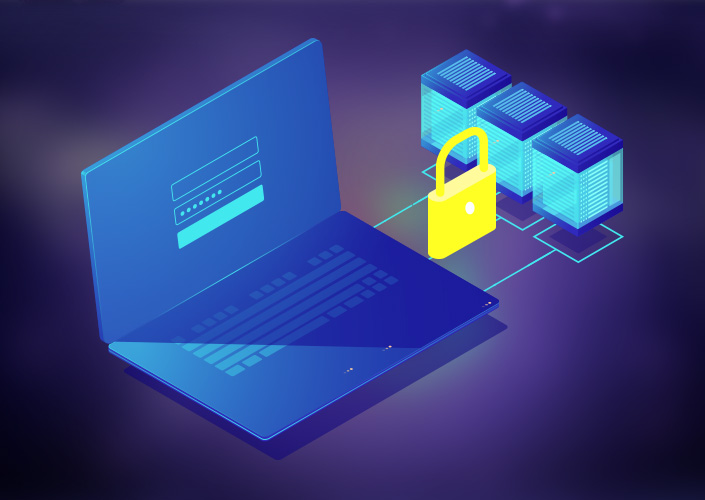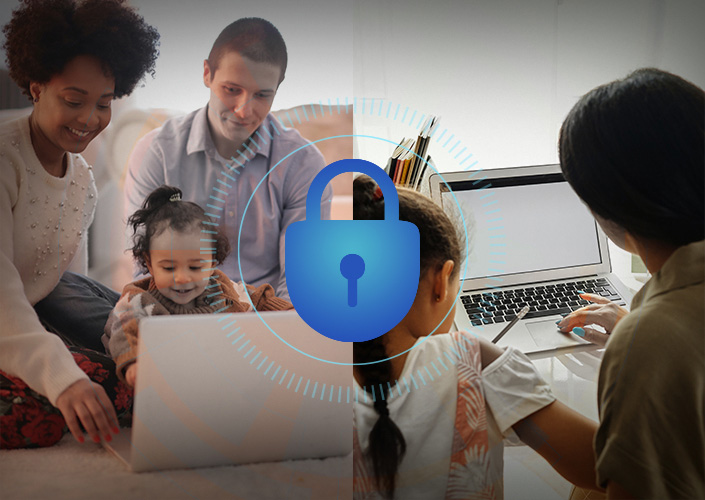How you can safeguard your dear ones from cybercriminals
by Shaji John, Director and Founding Member, utunnel.io
Online security breaches are becoming a really common issue, with the internet being omnipresent at every corner in our day-to-day lives. In the rush to make our lives simple, we increasingly rely on smart, connected devices at our homes. However, the surge in the use of similar devices also poses security risks to everyone who uses it. Online threats reach you in many forms and its impact varies from person to person. But, most people are not really prepared to face them.
Safeguarding your entire family from online threats might seem to be overwhelming. But your whole family can benefit if you follow the simple tips mentioned in this article. Better late than never.
Tip #1: Secure your home network
Most households now run networks of internet-connected devices, such as computers, mobile phones, TVs, smartphones, wearables and other internet-enabled home appliances. The internet access point of all these devices will be your wireless router. However, this router is the most potential entry point for cybercriminals. So, the first step should be securing the entry point of your home network. Do the following to secure your wireless router:
- Change the default name and password of your router with a unique name and strong password to secure it.
- Strengthen your Wi-Fi encryption with WPA2 security instead of the WEP option.
- Create a guest network for external users.
- Use firewall to prevent hackers from accessing your devices and block any communications with unauthorized sources.
- Keep the router firmware up-to-date.
- Create a separate network for IoT connected devices.
Tip #2: Encrypt your internet traffic with a VPN
Encryption refers to keeping your online activities and information private from the prying eyes of unwanted parties. The simplest way to encrypt your internet traffic is with the help of a virtual private network (VPN).

The internet traffic that originates from your devices will pass through the encrypted tunnel to reach the destination. It can help you hide your IP address and helps you access geo-restricted content. You might come across many VPN service providers in the market. Most of them offer VPN services on shared VPN servers, giving you anonymity. But, if you are looking for better privacy, it is recommended to setup your own Cloud VPN server to ensure absolute security to your data and online activities. You can set up VPN servers with any cloud service providers or at your own premises. This will ensure that the VPN is managed and accessed only by you or the people whom you give authorization to access it.
Tip #3: Set up parental controls and filtering
Defining the boundaries of children’s digital freedom is relevant in today’s world as it could expose them to online threats. It can also minimize their chances of unintentional landing on unwanted websites. A majority of the widely used operating systems, routers and even websites have parental control options that can be set to prevent your children from accessing inappropriate content. Cybercriminals often prey on poor cyber habits of internet users, particularly children. Appropriate parental controls can filter and block the outgoing content and prevent your children from sharing personal information with external parties.
Tip #4: Secure your IoT devices
Every appliance and device connected to the internet and to each other on your home network constitutes the Internet of Things (IoT) devices. Most of the households use IoT devices such as smart TVs, security cameras, smart bulbs, gaming consoles and many more. Even though these devices add more convenience to your daily lives, it can make you more exposed to attacks. Ransomware attacks, accessing personal information and location are examples of such vulnerabilities. The following are a few ways to safeguard your IoT-connected devices.
- Confirm the need of connecting your device to the internet. If there is a possibility to make the best use of the device without internet, then explore that opportunity to the maximum.
- Change the passwords on your IoT-connected devices quite often. You need to be diligent with the passwords and ensure unique passwords for each of your device.
- Audit the default privacy and security settings of your device and change them if they are not optimal.
- Disable the features on your IoT-connected devices that are not useful to you. Avoid enabling Universal Plug & Play (UPnP) features that help devices to find one another. UPnP protocols use local networks for connecting each other and are hence susceptible to external vulnerabilities.
- Always keep the software up-to-date because it might be a patch to fix a known flaw.
Tip#5: Back up your data
Cybersecurity experts define data back up as the last defense strategy against data loss. It provides a way to restore your original data. This will help you to have your data ready in the event of a hardware failure, ransomware attack or if your device gets stolen or damaged. Recovery of data once lost can be slow, costly or sometimes impossible. Regular data backup is indispensable to stay protected and ensure cybersecurity to everyone who handles it. It is always recommended to keep at least three copies of your critical data. You can store them in different media like on a hard disk or cloud.
Conclusion
Families should consider a layered approach to defend these online threats. Every internet user in the family should be well-educated about the threats they are susceptible to. Scamming children and elderly are a multi-million-dollar business. Cyberbullying, online identity theft, sharing information with bad actors, watching offensive videos and images, fake sweepstakes, malware and credit card scams are a few possible vulnerabilities in the list. Multiple devices connected to the same internet under one roof is the new normal. So, giving special attention to each device and the person who uses it matters. The safety of our family in the virtual world is as important as it is in the real world. Follow the best practices to ensure the safety of every internet user in your family.
About the Author
Shaji John is the Director and a Founding Member of utunnel.io. He has been focusing his expertise on building robust solutions in the IT space for more than a decade. He has vast experience in Information Technology Architecture, DevOps, SecOps and Service Delivery verticals.
With his exposure to working with large Fortune 500 companies, he is always on the lookout for the next big yet nimble startup capable of bringing focus back to customer experience and value. Utunnel.io is such an initiative, focused on the security needs of small and medium businesses, eliminating the need for costly and limited scale solutions for securing end to end communication.
You can visit https://www.utunnel.io for more information.


